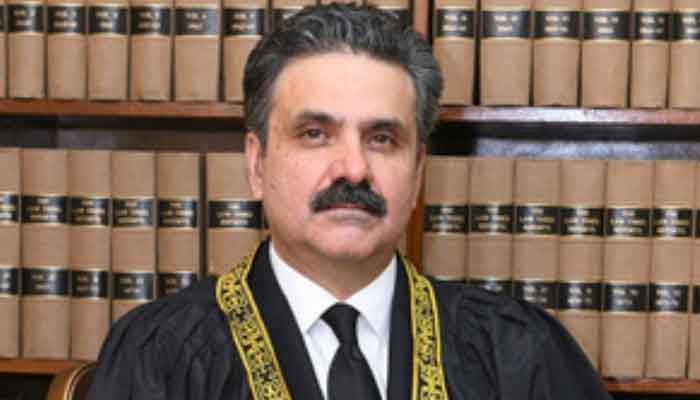Chief Justice Yahya Afridi has raised serious concerns about significant shortcomings in the trial of former Prime Minister Zulfikar Ali Bhutto, calling it a “dark chapter” in Pakistan’s judicial history. His remarks align with those of Justice Mansoor Ali Shah, acknowledging flaws in Bhutto’s infamous trial and advocating for reforms to uphold judicial integrity.
In an additional note, Justice Afridi expressed partial agreement with Justice Shah’s observations on the trial. While reviewing the opinions of former Chief Justice Qazi Faez Isa and other judges, Afridi emphasized that the Supreme Court’s advisory jurisdiction under Article 186 limits its scope in such matters. Despite this, he stressed the importance of addressing the trial’s fundamental flaws.
Justice Afridi highlighted the procedural violations during Bhutto’s trial, pointing out that under Pakistan’s criminal procedure laws, a murder trial should not have been directly conducted in the high court. Both the trial court and appellate court failed to ensure a fair trial, according to the chief justice.
In a significant revelation, Afridi referred to former Chief Justice Nasim Hasan Shah’s admission that external pressures influenced the verdict in Bhutto’s case, describing it as a “regrettable chapter” that undermined public trust in the judiciary. He praised dissenting judges, including Justices Dorab Patel, Mohammad Haleem, and Safdar Shah, for their courageous opposition to the pressures of the time, which, although not altering the outcome, showcased the judiciary’s commitment to impartiality and the rule of law.
The chief justice emphasized that the trial lacked due process and cautioned that unless such miscarriages of justice are addressed, public confidence in Pakistan’s legal system will continue to erode.
In July, former Chief Justice Qazi Faez Isa also declared Bhutto innocent, noting that he was sentenced to death by unconstitutional courts and without sufficient evidence. In his detailed remarks on the reference regarding Bhutto’s case, Isa highlighted that Bhutto was executed without a fair trial, pointing out that at the time of the trial, Pakistan was under martial law and fundamental rights were suspended. This context, Isa argued, rendered the courts illegitimate and subservient to the military regime, with the execution directly benefiting General Zia-ul-Haq.
The reference stated that if Bhutto had been released, he could have pursued serious charges of treason against Zia. Furthermore, the reference also criticized the significant delays in the review process, pointing out that the case file took 11 years to be heard, and all judges initially involved in the reference had retired. The evidence for Bhutto’s death sentence was also deemed insufficient, as there was no direct evidence under Section 302 of the Penal Code.
The Supreme Court clarified that Bhutto’s execution was neither a presidential reference appeal nor a review request. The constitution did not provide a mechanism to nullify the sentence once the Supreme Court dismissed the review, making the decision final. The opinion emphasized that a presidential reference cannot overturn a final judicial decision, and the Federal Investigation Agency (FIA) lacked the authority to reopen the case without a judicial order.
The court further noted that Bhutto’s fundamental rights were violated, including during the trial, which was conducted under highly questionable circumstances. Bhutto’s speeches in Parliament were improperly used against him, and the evidence was based on flawed or unverified sources. Additionally, the trial itself was marked by unprecedented procedural irregularities, with Bhutto being tried directly in the Lahore High Court, a move that deprived him of his right to appeal. The court noted that no other instance in Asia had seen a high court directly conduct a murder trial.
In the context of this historical case, Chief Justice Qazi Faez Isa pointed out that Justices Sardar Tariq Masood, Mansoor Ali Shah, Jamal Khan Mandokhail, and Ali Mazhar would provide additional notes on the reference. These reflections underscore the ongoing controversy and deep concerns about the fairness and legitimacy of the legal proceedings in Bhutto’s case.


